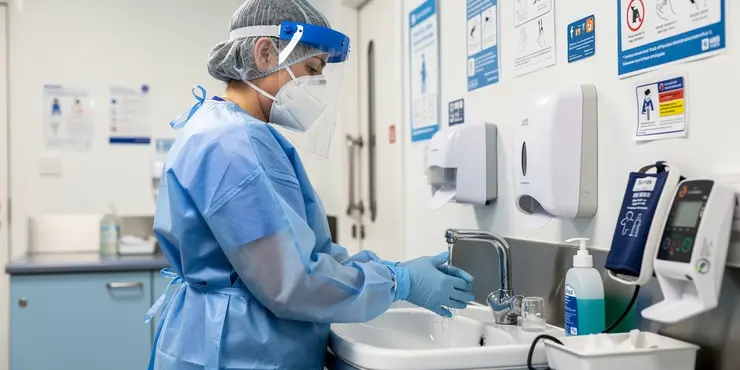
Find Help
More Items From Ergsy search
-
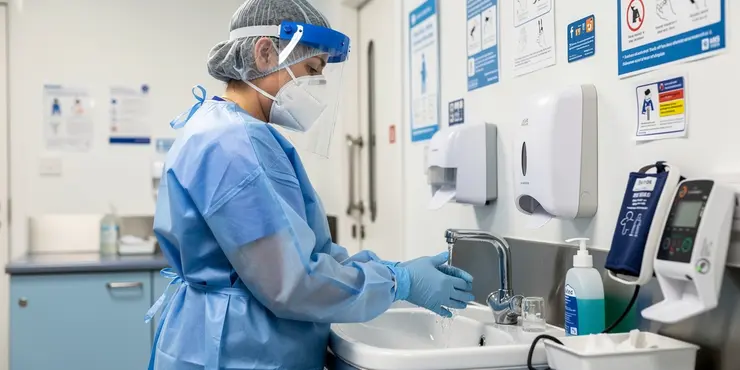
How can healthcare workers protect themselves from Marburg virus infection?
Relevance: 100%
-
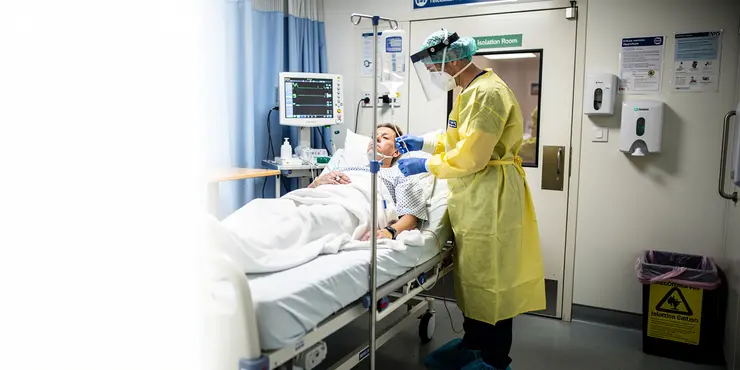
What is the Marburg Virus?
Relevance: 71%
-
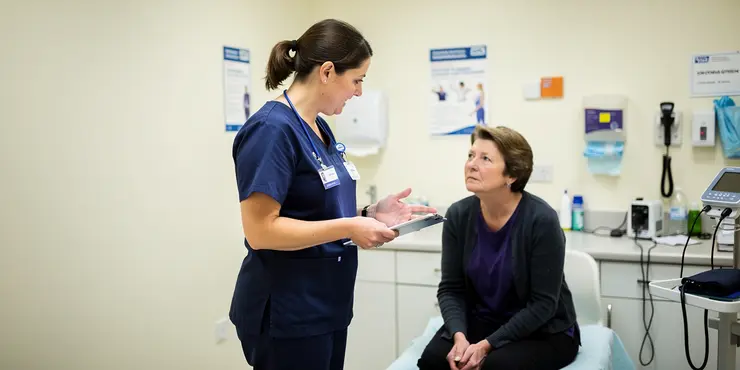
How is the Marburg virus transmitted?
Relevance: 69%
-
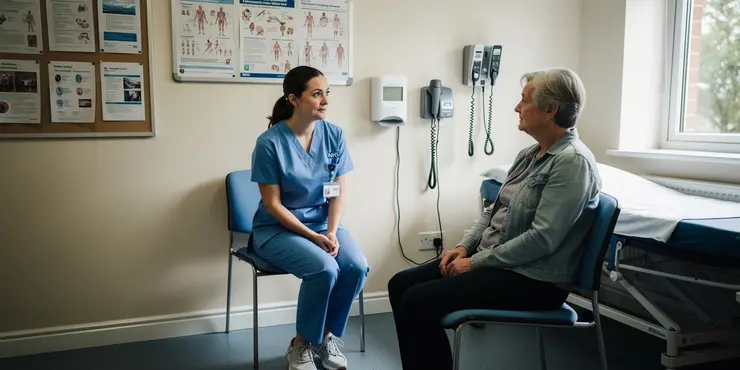
Is the Marburg virus related to the Ebola virus?
Relevance: 66%
-
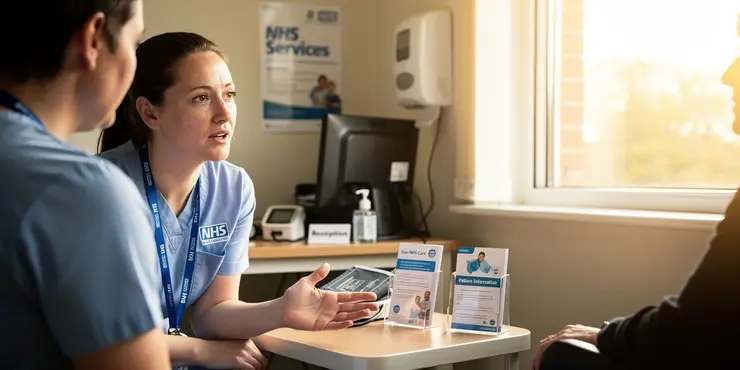
Can Marburg virus disease be prevented?
Relevance: 66%
-
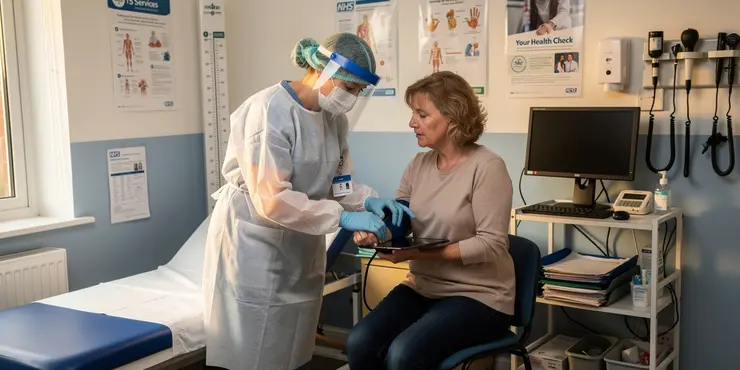
What measures are being taken to control Marburg virus outbreaks?
Relevance: 65%
-

Has Marburg virus caused any major outbreaks?
Relevance: 62%
-
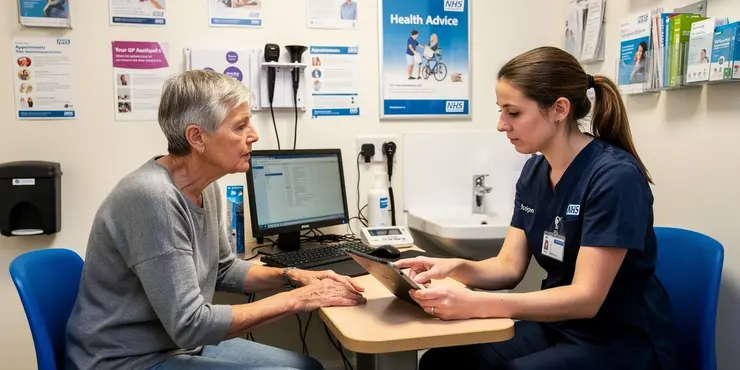
Where was the Marburg virus first discovered?
Relevance: 58%
-
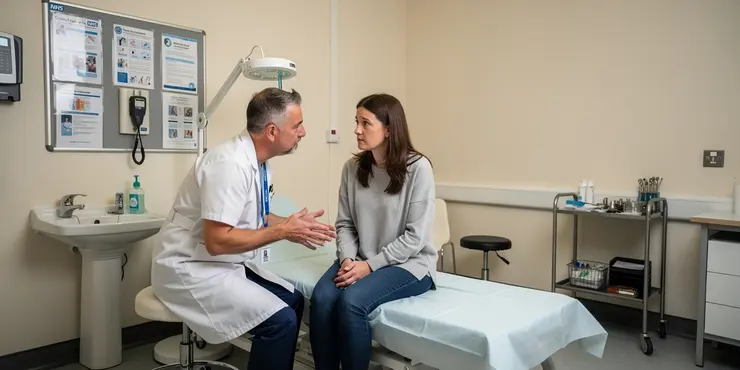
Can Marburg virus disease recur after recovery?
Relevance: 58%
-
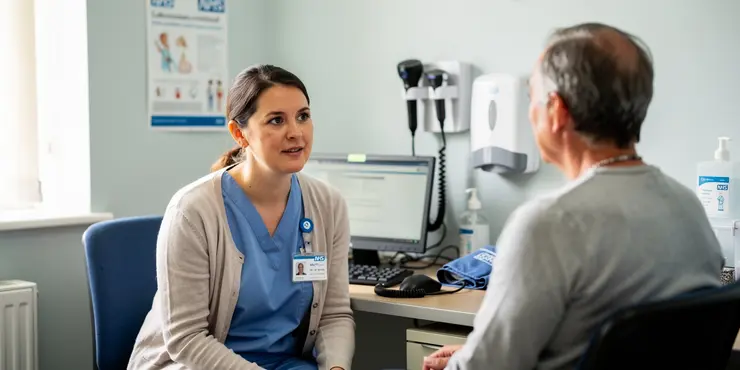
Is there a vaccine for Marburg virus?
Relevance: 57%
-

How do health authorities confirm a Marburg virus outbreak?
Relevance: 56%
-

What research is being done on the Marburg virus?
Relevance: 56%
-
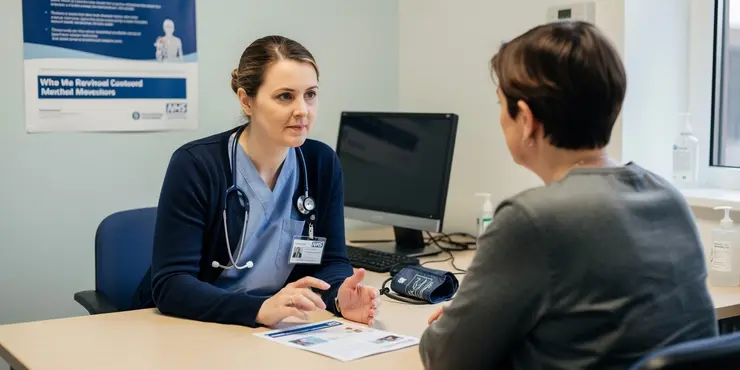
Are there any countries at higher risk for Marburg virus outbreaks?
Relevance: 54%
-

How is Marburg virus disease diagnosed?
Relevance: 54%
-

What is the typical progression of Marburg virus disease?
Relevance: 52%
-
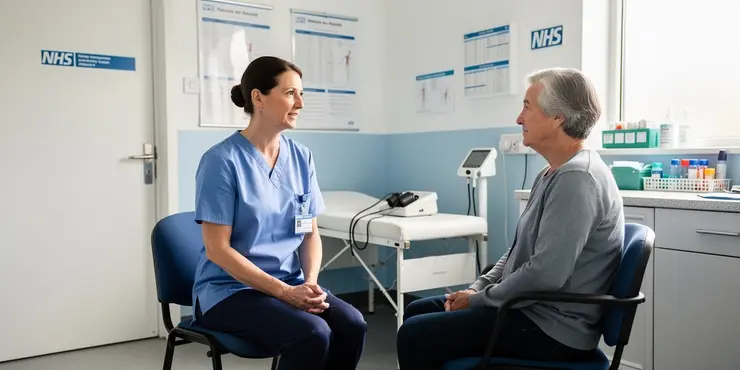
What are the symptoms of Marburg virus disease?
Relevance: 51%
-
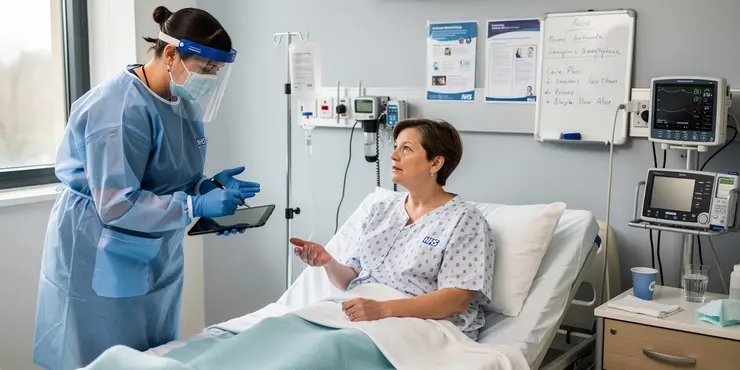
What is the mortality rate of Marburg virus disease?
Relevance: 51%
-

How long is the incubation period for the Marburg virus?
Relevance: 50%
-

What preventive measures can reduce the risk of Nipah Virus infection?
Relevance: 39%
-

What healthcare policies should support workers be aware of?
Relevance: 39%
-

Can Chikungunya virus infection be treated?
Relevance: 38%
-

What is Chikungunya virus infection?
Relevance: 38%
-

Are gig workers protected against wrongful termination?
Relevance: 37%
-
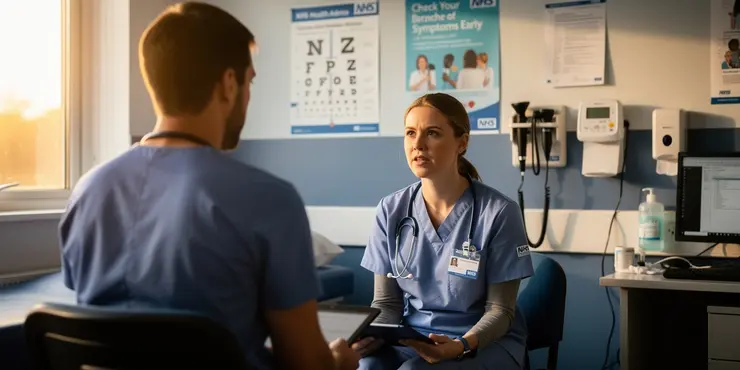
What are the symptoms of Nipah Virus infection?
Relevance: 37%
-

What should someone do if they suspect Nipah Virus infection?
Relevance: 37%
-

What is the mortality rate of Nipah Virus infection?
Relevance: 37%
-

What is the Ebola virus?
Relevance: 37%
-
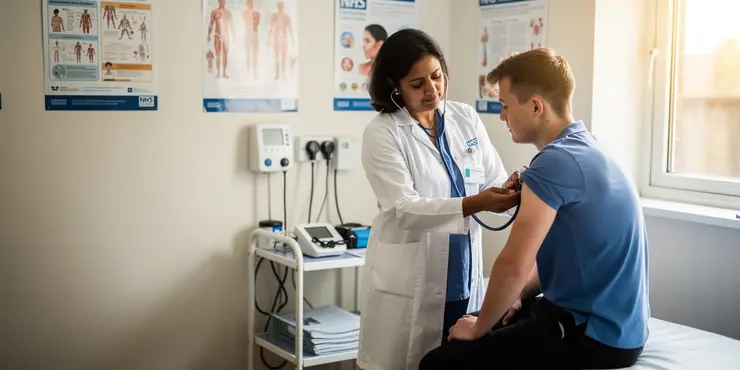
How is Chikungunya virus infection diagnosed?
Relevance: 37%
-

Can men in the UK transmit Zika virus if infected?
Relevance: 36%
-
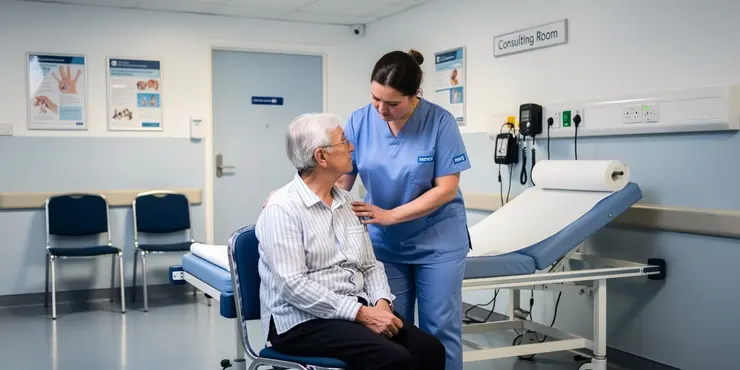
Can Nipah Virus be transmitted from person to person?
Relevance: 35%
-
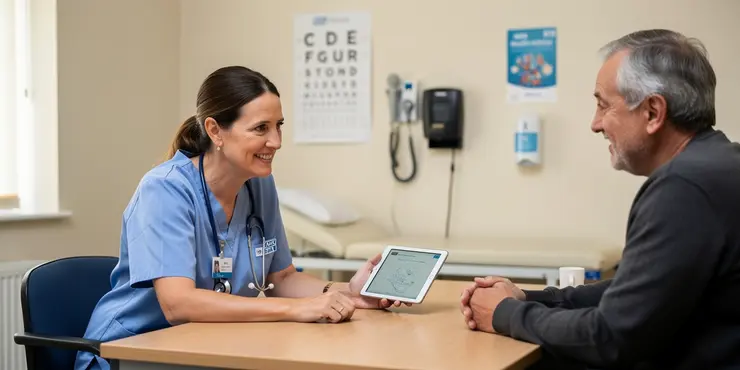
Can Nipah Virus cause outbreaks?
Relevance: 32%
-

How is Nipah Virus transmitted?
Relevance: 32%
-

How can UK residents protect themselves from Zika virus when traveling?
Relevance: 31%
-

Are gig workers entitled to workers' compensation?
Relevance: 31%
-

What types of training are available for primary care support workers?
Relevance: 30%
-
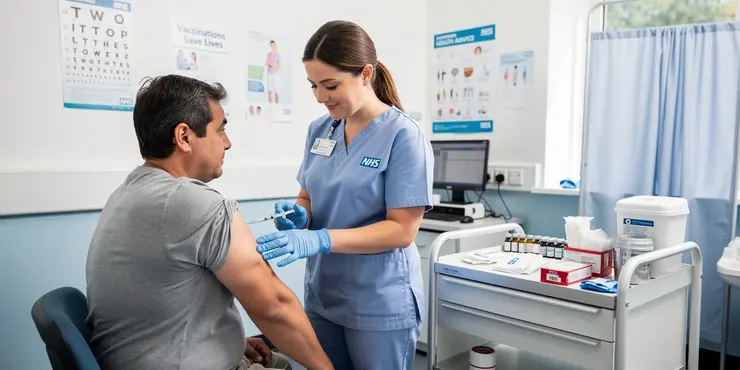
Should health care workers get the meningitis vaccine?
Relevance: 29%
-

Can Zika virus affect pregnancy?
Relevance: 29%
-

How is Nipah Virus controlled during outbreaks?
Relevance: 29%
-
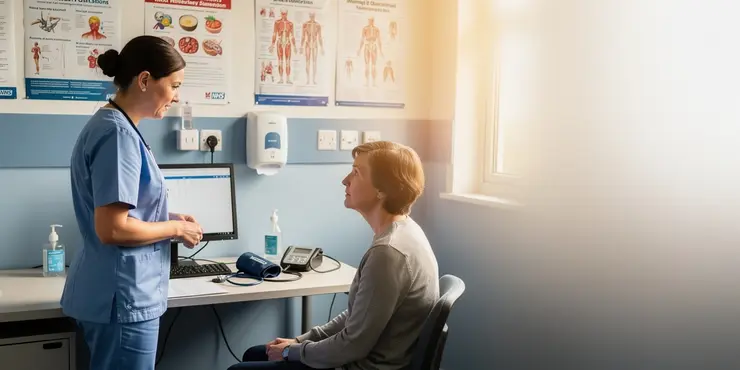
Is the UK government providing guidance on Zika virus for travelers?
Relevance: 29%
-
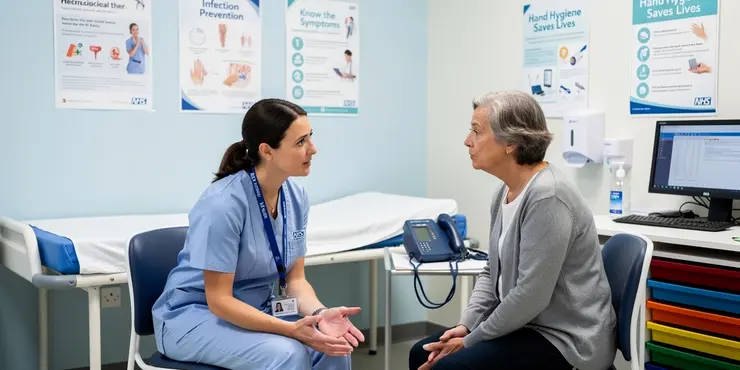
Can Nipah Virus cause neurological complications?
Relevance: 29%
Understanding Marburg Virus
The Marburg virus is a highly infectious pathogen that causes Marburg virus disease, a severe hemorrhagic fever similar to Ebola. The disease is often fatal and can be transmitted to humans from fruit bats or human-to-human contact. Protecting healthcare workers from infection is crucial, particularly in outbreak settings.
Personal Protective Equipment (PPE)
The most immediate and effective measure for healthcare workers to protect themselves from Marburg virus infection is the use of personal protective equipment (PPE). PPE should include gloves, gowns, masks, and goggles or face shields to prevent any contact with infectious material. All equipment must meet safety standards and be properly fitted to ensure maximum protection.
Strict Hygiene Protocols
Maintaining strict hygiene protocols is essential in preventing the spread of the Marburg virus. Healthcare workers should wash their hands frequently with soap and water or use alcohol-based hand sanitizers. Immediate disinfection of surfaces and equipment that may have come into contact with the virus is also necessary. Waste disposal protocols must be followed to prevent secondary infections and environmental contamination.
Training and Awareness
Continuous training and awareness programs for healthcare workers are critical. Staff should receive regular briefings on the latest guidelines for infection prevention and control. This training helps ensure that all personnel are aware of the risks and the correct protocols to follow in the event of a suspected or confirmed case of Marburg virus.
Monitoring and Early Detection
Healthcare facilities should implement screening protocols to quickly identify and isolate patients with symptoms of Marburg virus. Early detection is key to controlling outbreaks and preventing transmission to healthcare staff. Workers should monitor their health and report any symptoms immediately to ensure prompt medical evaluation and intervention.
Collaboration and Communication
Collaboration between healthcare institutions, governmental health bodies, and international organizations is pivotal in managing and preventing Marburg virus outbreaks. Clear communication channels should be established to ensure timely sharing of information and resources. This cooperation enables a coordinated response, essential for protecting healthcare workers and the wider public.
Immunisation and Research
While no vaccine is currently available for the Marburg virus, ongoing research is vital for developing effective preventive measures. Healthcare workers should stay informed about advancements in vaccines and therapeutic interventions. Supporting research efforts can contribute to long-term solutions for controlling and eliminating the threat of Marburg virus.
What is Marburg Virus?
Marburg virus is a very dangerous germ. It makes people very sick with a fever. It is like the Ebola virus. People can catch it from bats or from other people. It’s important to keep doctors and nurses safe from this virus, especially when there is an outbreak.
Using Protective Gear
Doctors and nurses should wear special clothes to stay safe from the virus. These clothes are called personal protective equipment or PPE. PPE includes gloves, gowns, masks, and goggles. They help stop the virus from touching the skin. The gear must fit well and keep workers safe.
Being Clean and Careful
Doctors and nurses must wash their hands often with soap and water. They can also use hand sanitizers. Cleaning things right away, like tables and tools, stops the virus from spreading. It's also important to throw away waste safely.
Learning and Staying Informed
Healthcare workers need to learn about new rules to stop the virus. Training and regular updates help everyone know what to do if someone gets sick. Knowing the correct steps keeps everyone safe.
Watch for Signs of the Virus
Hospitals should check people for signs of the virus. Finding the virus early helps stop it from spreading. Doctors and nurses should tell someone right away if they feel sick. This will help them get care quickly.
Working Together
Doctors and health groups need to work together. They should talk and share information quickly. Working together helps keep people safe and stops the virus from spreading.
Research and Vaccines
There is no vaccine for Marburg virus yet, but scientists are working on it. It is important to follow the news about new treatments. Healthcare workers should support research to find ways to stop the virus in the future.
Frequently Asked Questions
What personal protective equipment (PPE) should healthcare workers use to protect against Marburg virus?
Healthcare workers should use gloves, gowns, eye protection (such as goggles or face shields), and masks or respirators (such as N95 or FFP2) when dealing with patients suspected or confirmed to have Marburg virus.
How often should healthcare workers change their PPE when working with Marburg virus patients?
PPE should be changed every time a healthcare worker exits a patient's room or area, and between each patient contact, to prevent cross-contamination.
What hand hygiene practices are recommended for healthcare workers to prevent Marburg virus infection?
Healthcare workers should wash their hands with soap and water or use an alcohol-based hand sanitizer before and after all patient contacts, after removing PPE, and after coughs or sneezes.
What isolation measures should be implemented for patients with suspected Marburg virus?
Patients with suspected Marburg virus should be isolated in a separate room with dedicated bathroom facilities, and strict access should be controlled and limited to essential personnel only.
How can healthcare workers safely dispose of waste from patients with Marburg virus?
All waste from such patients should be treated as infectious and disposed of in biohazard bags or containers. Waste should be incinerated or sterilized according to infection control guidelines.
Is it necessary for healthcare workers to receive training specific to Marburg virus?
Yes, healthcare workers should undergo specialized training on infection prevention and control measures for handling Marburg virus outbreaks.
What should healthcare workers do if they suspect they have been exposed to Marburg virus?
They should immediately wash the exposure site with soap and water, seek medical evaluation, and report the incident to infection control and occupational health departments.
Are vaccinations available for healthcare workers against Marburg virus?
As of now, there is no approved vaccine for Marburg virus. Prevention relies on strict adherence to infection control practices.
What role does environmental cleaning play in preventing Marburg virus transmission in healthcare settings?
Thorough cleaning and disinfection of surfaces in healthcare settings are vital, using appropriate disinfectants that are effective against viruses.
How can healthcare workers limit their exposure to Marburg virus during an outbreak?
Workers should use PPE properly, limit the number of persons caring for infected patients, adhere to hand hygiene protocols, and follow isolation procedures.
What should healthcare facilities do to prepare for potential Marburg virus cases?
Facilities should develop outbreak preparedness plans, ensure training and stockpile appropriate PPE, and establish protocols for patient isolation and waste management.
Why is it important for healthcare workers to know the symptoms of Marburg virus?
Recognizing symptoms early is crucial for isolating patients, implementing control measures, and reducing the risk of transmission.
Can healthcare workers transmit Marburg virus to their families?
There is a risk of transmission if infection control procedures are not followed properly. It is crucial to remove PPE safely and maintain good personal hygiene.
What is the incubation period for Marburg virus, and why is this important for healthcare workers?
The incubation period is typically 2 to 21 days. Healthcare workers should monitor themselves for symptoms during this period after exposure.
What steps should be taken if a healthcare worker develops symptoms of Marburg virus?
They should self-isolate immediately, inform their supervisor, and seek medical evaluation and testing as soon as possible.
How should healthcare workers manage bodily fluids from Marburg virus patients?
They should handle all bodily fluids with extreme caution, using appropriate PPE, and ensure proper waste disposal practices are followed.
Can Marburg virus be transmitted through the air?
Marburg virus is primarily transmitted through body fluids. Airborne transmission is not the primary route, but precautions against droplet spread are recommended.
What should healthcare workers do before entering the room of a Marburg virus patient?
They should perform hand hygiene and don the necessary PPE, ensuring all skin and clothing are covered.
Why is it important to limit the number of healthcare workers treating a Marburg virus patient?
Limiting the number of caregivers reduces the risk of healthcare-associated transmission and ensures that staff are well-trained and experienced in dealing with the virus.
What protocols are in place for contact tracing in healthcare settings during a Marburg virus outbreak?
Healthcare facilities should have protocols for identifying and monitoring individuals who may have been exposed to the virus, to control and prevent further transmission.
What safety gear should healthcare workers wear to stay safe from Marburg virus?
Healthcare workers need special clothes to keep them safe from the Marburg virus. Here is a list of the important safety gear they should use:
- Gloves: Wear gloves to protect your hands.
- Masks: Use masks to cover your mouth and nose.
- Goggles: Wear goggles to keep your eyes safe.
- Gowns: Put on gowns to cover your body.
- Shoe covers: Wear covers on your shoes to keep your feet safe.
These clothes help stop the virus from getting on your skin or in your mouth, nose, or eyes. It is important to wear them all the time when near people with the virus.
Helpful Tips:
- Check your gear before each use to make sure it's not damaged.
- Practice putting on and taking off the gear safely with a buddy.
Using these tools can help keep healthcare workers safe from getting sick.
Doctors and nurses must wear special clothes and gear to stay safe. They need to wear gloves, gowns, goggles or face shields, and masks like N95 or FFP2 when they help people who might have the Marburg virus.
How often should healthcare workers change their protective clothes when helping people with Marburg virus?
Healthcare workers should change their protective clothes every time they help a new person. This keeps them safe from the virus.
Here are some tools to help remember:
- Use a checklist: Mark down each time you change your clothes.
- Set a timer: A timer can remind you to change regularly.
- Ask a buddy: Work with a friend to remind each other.
Healthcare workers need to change their safety gear every time they leave a patient's room. They should also change it when they see a new patient. This helps stop the spread of germs.
How should healthcare workers clean their hands to stop Marburg virus infection?
Healthcare workers should clean their hands often. Here are some tips:
- Wash hands with soap and water for 20 seconds.
- If no soap and water, use hand sanitizer with alcohol.
- Make sure to rub all parts of the hands.
- Wash hands before and after touching patients.
These steps can help keep healthcare workers and patients safe.
Healthcare workers need to keep their hands clean. They should do this by washing their hands with soap and water. They can also use a hand sanitizer that has alcohol in it. They should wash their hands before and after touching any patients. They should also wash their hands after taking off their protective clothes and after coughing or sneezing.
Helpful Tips:
- Use a timer to make sure you wash your hands for at least 20 seconds.
- Sing a song like "Happy Birthday" twice while washing hands to keep track of time.
- Keep hand sanitizer in your pocket for easy use when you can't wash with soap and water.
How can we keep people safe if someone might have the Marburg virus?
If someone might have Marburg virus, they should stay in a different room with their own bathroom. Only people who must help them should go in the room. We should keep track of who goes in and out.
How can healthcare workers safely throw away waste from patients with Marburg virus?
Healthcare workers must be very careful when getting rid of waste from patients with Marburg virus. Here are some simple steps to follow:
- Wear gloves and protective clothing to keep safe.
- Put waste in strong, special bags that do not break easily.
- Seal the bags tightly so nothing can come out.
- Put the sealed bags in special bins for dangerous waste.
- Wash hands with soap and water after handling waste.
Healthcare workers can use pictures or signs to remember these steps. It's important to keep everyone safe and healthy.
All waste from these patients is dangerous. We must put it in special biohazard bags or boxes. Then, we burn or clean it to make it safe, following important rules.
Do healthcare workers need special training for the Marburg virus?
Healthcare workers, like doctors and nurses, should learn about the Marburg virus to help keep themselves and others safe. Special training can teach them what to do if someone is sick with this virus. Training helps them know the signs of the virus and how to stop it from spreading.
It is a good idea to use simple tools, like videos or picture guides, to help learn about the virus. These can make it easier to remember important information. Working in teams can also help everyone learn better and feel supported.
Yes, healthcare workers need special training to stop the spread of Marburg virus. This helps them stay safe and protect others.
What to Do if You Think You Have Been Near Marburg Virus
If you are a healthcare worker and think you have been near Marburg virus, follow these steps:
- Tell your boss or the person in charge right away.
- Stay away from other people to keep them safe.
- Get medical help quickly. Go to a doctor or hospital.
- Wash your hands with soap and water often.
You can use a notebook or phone to write down how you feel every day. This helps doctors know what is happening.
First, wash the area where it happened with soap and water right away. Then, go to a doctor to get checked. Tell the people who work with germs or health at your job about it.
Can healthcare workers get vaccines to protect them from the Marburg virus?
Right now, there is no vaccine for the Marburg virus. To stay safe, people need to be very careful and follow safety rules to stop infections.
How does cleaning help stop the Marburg virus from spreading in hospitals?
Cleaning is very important to keep the Marburg virus from spreading in places like hospitals.
When hospitals are clean, it helps stop the virus from passing from one person to another.
It is important to clean surfaces like tables, beds, and door handles.
This stops germs from spreading and keeps people safe.
Here are some tips to help with cleaning:
- Use gloves and masks to stay safe while cleaning.
- Clean with soap and water or special cleaners that kill germs.
- Make sure to clean often, especially in places lots of people touch.
Support tools like picture guides can help show how to clean properly.
Listening to step-by-step instructions can also be very helpful.
It is very important to keep places like hospitals and clinics very clean. Use strong cleaners to kill germs and viruses on surfaces.
How can healthcare workers stay safe from Marburg virus during an outbreak?
Healthcare workers help people who are sick. But they also need to stay safe.
Marburg virus is very dangerous. It can make people very sick.
Here are ways healthcare workers can stay safe:
- Wear special clothes and masks to protect your body and face.
- Wash hands with soap and water a lot.
- Use hand sanitizer when you can't wash your hands.
- Stay away from people who are sick if you can.
- Clean places where you work often.
- Listen to experts who tell you what to do to stay safe.
These steps can help healthcare workers stay healthy.
Workers should wear safety gear the right way. Only a few people should help sick patients. Always wash hands carefully, and follow the rules to keep germs from spreading.
How can hospitals get ready for Marburg virus cases?
Hospitals need to be ready for the Marburg virus. They should make a plan.
Here is what they can do:
- Train staff on how to spot the virus.
- Have safety gear like masks and gloves.
- Set up special areas for sick people.
- Teach everyone how to wash hands well.
Tools that can help:
- Posters with pictures showing steps.
- Videos about keeping safe.
Places like hospitals and care homes should have a plan for what to do when there's a lot of sickness. They need to make sure everyone knows what to do and has safety gear ready. They also need rules for keeping sick people separate and for handling rubbish safely.
Why do doctors and nurses need to know the signs of Marburg virus?
Doctors and nurses need to know the signs of Marburg virus so they can help people who are sick. This way, they can stop the virus from spreading to others.
Some tools can help doctors and nurses learn about Marburg virus. These tools include:
- Books with pictures and simple words
- Online videos that explain what to look for
- Training classes with other doctors and nurses
Knowing the signs is important to keep everyone safe and healthy.
It is important to see symptoms early. This helps keep people away from others, stop the spread, and protect everyone.
Can healthcare workers give the Marburg virus to their families?
Healthcare workers help sick people. But they can catch germs, like the Marburg virus, from sick people.
If a healthcare worker has the Marburg virus, they might give it to their family.
It is important for healthcare workers to wash their hands and wear gloves and masks. This can help stop the virus from spreading.
If you have questions, talk to a doctor or a nurse.
There is a chance of spreading germs if people do not follow the rules. It is very important to take off protective clothing safely and keep clean.
Here are some tips to help:
- Wash your hands for 20 seconds with soap and water.
- Use hand sanitizer if you can’t wash your hands.
- Ask for help if you are unsure about how to take off protective clothing.
How long does it take to get sick from the Marburg virus, and why do doctors need to know?
The time from getting the Marburg virus to feeling sick is called the incubation period. This takes about 2 to 21 days.
Doctors and nurses need to know this because:
- They can watch if someone might get sick.
- They can stop the virus from spreading.
- They can help people as soon as possible.
Some things that can help:
- Using a calendar to mark the days.
- Telling doctors if you feel sick.
- Washing hands often to stay safe.
The time it takes for someone to show signs of an illness is usually between 2 to 21 days. During this time, doctors and nurses need to watch themselves for any signs that they might be getting sick after coming into contact with the illness.
What to do if a healthcare worker feels sick with Marburg virus?
If you are a healthcare worker and start to feel sick, it is important to act quickly. Here’s what you should do:
- Tell a doctor or a nurse right away.
- Stay away from other people to avoid spreading the virus.
- Wear a mask and wash your hands often.
- Get checked by a doctor as soon as possible.
- Rest and take any medicine the doctor gives you.
It’s okay to ask for help. You can use a special thermometer to check your temperature. You can also use pictures to understand what to do. Always follow the doctor’s advice.
If they feel sick, they should stay alone right away, tell their boss, and see a doctor to get checked and tested as soon as they can.
What should healthcare workers do with body fluids from patients with Marburg virus?
Here are some easy steps for healthcare workers:
1. Wear gloves, masks, and gowns to stay safe.
2. Carefully clean spills right away.
3. Use special bins for waste.
4. Wash hands a lot to stay clean.
If you have difficulty, ask someone for help or use pictures and videos to understand better.
They should be very careful with all body fluids. They need to use safety gear like gloves and masks. It's important to throw away waste correctly too.
Can Marburg virus spread through the air?
Can the Marburg virus float in the air and make people sick? Let's find out.
Short answer: No, it doesn't spread in the air like a cold.
How does it spread? It spreads through touching sick people or animals, or their fluids.
Here's a tip: Wash your hands and avoid contact with people who are sick.
If you're unsure, ask a grown-up or use pictures and videos to help understand.
The Marburg virus spreads mainly through body fluids, like blood or spit. It does not usually spread through the air. It's a good idea to be careful around droplets, like sneezes or coughs.
What to do before going into a room with a sick person who has the Marburg virus?
Healthcare workers should:
- Wash hands well.
- Wear special clothes, gloves, and masks.
- Make sure everything fits right.
If you are helping someone, remind them to do these things. Maybe use a checklist to make sure everything is done.
They should wash their hands well and put on the right safety gear to cover their skin and clothes.
Why should only a few healthcare workers help a Marburg virus patient?
It's important for only a few healthcare workers to take care of someone with the Marburg virus.
This helps to:
- Keep the virus from spreading to more people.
- Make sure only trained workers handle the virus safely.
Using protective gear like gloves and masks is important too. This helps keep everyone safe.
Having fewer caregivers helps stop the spread of germs in hospitals. It makes sure the staff knows how to take care of people with the virus.
How do hospitals track who has been in contact with Marburg virus?
When someone gets sick with Marburg virus, hospitals need to know who they met. This helps stop the virus from spreading.
Here is what hospitals do:
- Ask the sick person who they saw and talked to.
- Call the people they met to see if they feel sick.
- Tell those people to see a doctor if they feel unwell.
- Use computers to keep track of who might be sick.
If you need help, ask a friend or use text-to-speech tools to read this out loud.
Hospitals and clinics need to have simple rules to find and check people who might have caught the virus. This helps stop the virus from spreading to others.
Helpful Tips:
- Use pictures or symbols to help understand what to do.
- Ask someone to explain the rules if you need help.
Useful Links
This website offers general information and is not a substitute for professional advice.
Always seek guidance from qualified professionals.
If you have any medical concerns or need urgent help, contact a healthcare professional or emergency services immediately.
Some of this content was generated with AI assistance. We’ve done our best to keep it accurate, helpful, and human-friendly.
- Ergsy carfully checks the information in the videos we provide here.
- Videos shown by Youtube after a video has completed, have NOT been reviewed by ERGSY.
- To view, click the arrow in centre of video.
- Most of the videos you find here will have subtitles and/or closed captions available.
- You may need to turn these on, and choose your preferred language.
- Go to the video you'd like to watch.
- If closed captions (CC) are available, settings will be visible on the bottom right of the video player.
- To turn on Captions, click settings .
- To turn off Captions, click settings again.
More Items From Ergsy search
-

How can healthcare workers protect themselves from Marburg virus infection?
Relevance: 100%
-

What is the Marburg Virus?
Relevance: 71%
-

How is the Marburg virus transmitted?
Relevance: 69%
-

Is the Marburg virus related to the Ebola virus?
Relevance: 66%
-

Can Marburg virus disease be prevented?
Relevance: 66%
-

What measures are being taken to control Marburg virus outbreaks?
Relevance: 65%
-

Has Marburg virus caused any major outbreaks?
Relevance: 62%
-

Where was the Marburg virus first discovered?
Relevance: 58%
-

Can Marburg virus disease recur after recovery?
Relevance: 58%
-

Is there a vaccine for Marburg virus?
Relevance: 57%
-

How do health authorities confirm a Marburg virus outbreak?
Relevance: 56%
-

What research is being done on the Marburg virus?
Relevance: 56%
-

Are there any countries at higher risk for Marburg virus outbreaks?
Relevance: 54%
-

How is Marburg virus disease diagnosed?
Relevance: 54%
-

What is the typical progression of Marburg virus disease?
Relevance: 52%
-

What are the symptoms of Marburg virus disease?
Relevance: 51%
-

What is the mortality rate of Marburg virus disease?
Relevance: 51%
-

How long is the incubation period for the Marburg virus?
Relevance: 50%
-

What preventive measures can reduce the risk of Nipah Virus infection?
Relevance: 39%
-

What healthcare policies should support workers be aware of?
Relevance: 39%
-

Can Chikungunya virus infection be treated?
Relevance: 38%
-

What is Chikungunya virus infection?
Relevance: 38%
-

Are gig workers protected against wrongful termination?
Relevance: 37%
-

What are the symptoms of Nipah Virus infection?
Relevance: 37%
-

What should someone do if they suspect Nipah Virus infection?
Relevance: 37%
-

What is the mortality rate of Nipah Virus infection?
Relevance: 37%
-

What is the Ebola virus?
Relevance: 37%
-

How is Chikungunya virus infection diagnosed?
Relevance: 37%
-

Can men in the UK transmit Zika virus if infected?
Relevance: 36%
-

Can Nipah Virus be transmitted from person to person?
Relevance: 35%
-

Can Nipah Virus cause outbreaks?
Relevance: 32%
-

How is Nipah Virus transmitted?
Relevance: 32%
-

How can UK residents protect themselves from Zika virus when traveling?
Relevance: 31%
-

Are gig workers entitled to workers' compensation?
Relevance: 31%
-

What types of training are available for primary care support workers?
Relevance: 30%
-

Should health care workers get the meningitis vaccine?
Relevance: 29%
-

Can Zika virus affect pregnancy?
Relevance: 29%
-

How is Nipah Virus controlled during outbreaks?
Relevance: 29%
-

Is the UK government providing guidance on Zika virus for travelers?
Relevance: 29%
-

Can Nipah Virus cause neurological complications?
Relevance: 29%


